Workers slow to return as Delta threat lingers
American employers added only 194,000 positions last month, badly missing expectations for the second month in a row
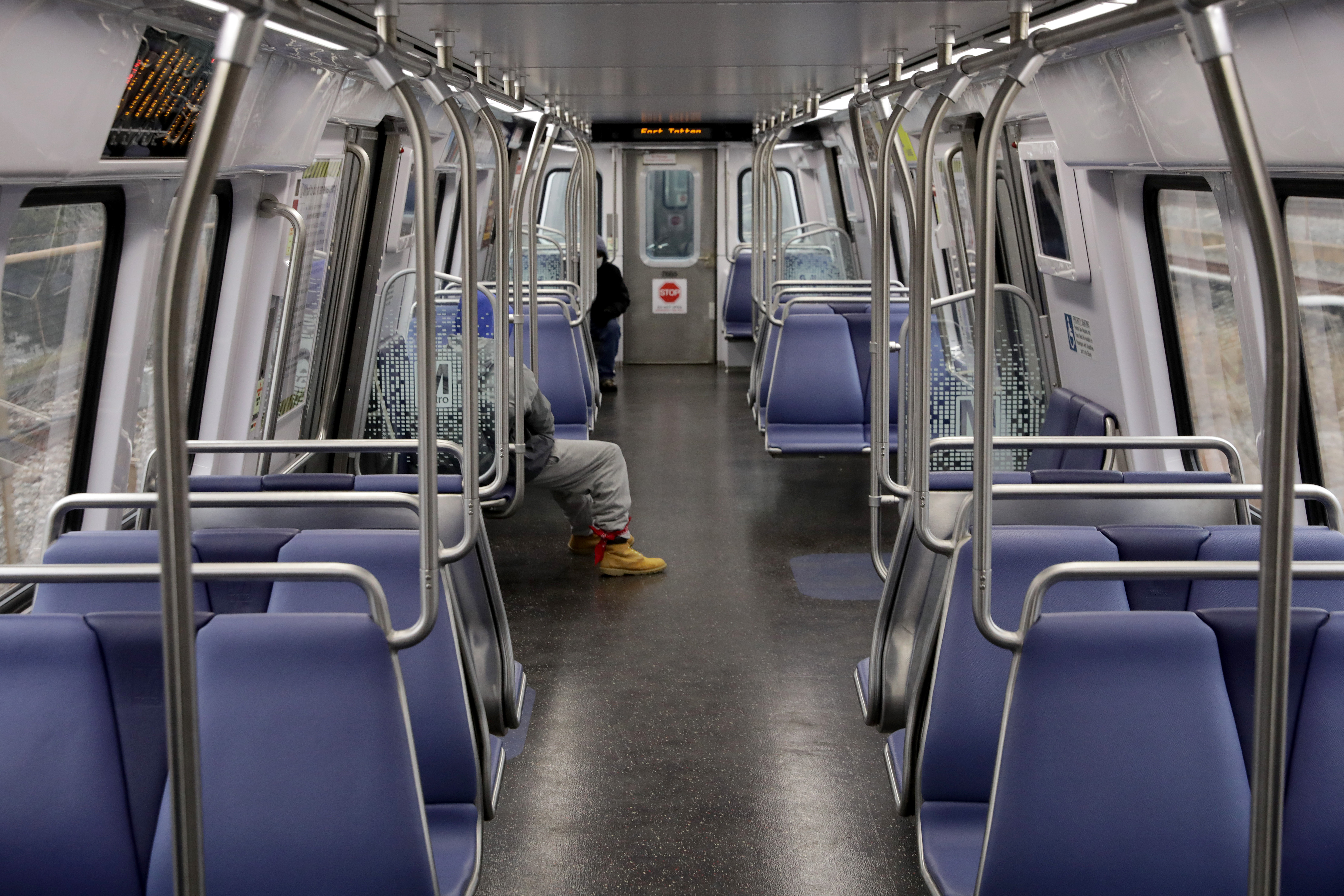
A free daily email with the biggest news stories of the day – and the best features from TheWeek.com
You are now subscribed
Your newsletter sign-up was successful
The smartest insight and analysis, from all perspectives, rounded up from around the web:
Another surprisingly weak jobs report paints a muddled picture of the United States' economic recovery, said Colby Smith at the Financial Times. American employers added only 194,000 positions last month, badly missing expectations for the second month in a row. The unemployment rate fell, from 5.2 percent to 4.8 percent — unfortunately, the most likely cause is that many "prime-age workers," those 25 to 54, stopped actively looking for work and no longer get counted. Businesses across a wide variety of sectors continue to struggle to fill roles. The "long-held prediction that Americans would return to work en masse as schools reopened and federal unemployment benefits expired" did not materialize. There are still 5 million more Americans unemployed than at the start of the pandemic, and it seems "many of the forces holding them back from returning to the workforce persist."
"It's not as bad it looks," said Neil Irwin at The New York Times. Some of the weakness can be chalked up to "strange statistical quirks around school reopening." Education jobs fell by 180,000 in September, but that's "not new information about what is happening this fall." It more likely reflects a shrinking education sector we already knew about. Earlier employment numbers from July and August were also revised up by 169,000 jobs. Labor force participation, however, "remains the Achilles' heel of the recovery." Women especially continue to have a hard time getting off the sidelines, said Danny Dougherty and Taylor Umlauf at The Wall Street Journal. "The number of women who say they want a job but aren't looking for one has grown since the pandemic began," while the number of men in that position has shrunk. The Delta variant "raised fears and scrambled child care" for many women who planned to start work again this fall.
The Week
Escape your echo chamber. Get the facts behind the news, plus analysis from multiple perspectives.

Sign up for The Week's Free Newsletters
From our morning news briefing to a weekly Good News Newsletter, get the best of The Week delivered directly to your inbox.
From our morning news briefing to a weekly Good News Newsletter, get the best of The Week delivered directly to your inbox.
We can at least say with confidence that there was no Labor Day "cliff," said Greg Iacurci at CNBC. Many economists and policymakers blamed federal benefits for "holding back the recovery." But after the $300 weekly unemployment benefits bonus ended last month, there was little evidence of workers rushing back. It's clear that "other factors, especially COVID, have played a bigger role." Many workers have no intention of returning to their old jobs, said Robert Reich at Common Dreams. "Corporate America is calling this a 'labor shortage.'" But what we really have is a "living wage shortage, a hazard pay shortage, a child-care shortage, a paid sick leave shortage, and a health-care shortage." A lot of those unemployed are refusing the same low-wage, backbreaking work they had before the pandemic. It's the "equivalent of a general strike."
There's nothing wrong with holding out for a better gig, said Megan McArdle at The Washington Post, "but that doesn't mean those jobs exist, or profitably can, in the same numbers as the old jobs." Workers may find that the longer they wait out this cycle, the greater chance employers will have "learned to get along without them," finding adequate replacements in technology and QR codes. It's great that "workers feel their bargaining position is strong enough to demand something better than the same old grind." Let's just hope they're right.
This article was first published in the latest issue of The Week magazine. If you want to read more like it, you can try six risk-free issues of the magazine here.
A free daily email with the biggest news stories of the day – and the best features from TheWeek.com
-
 Sepsis ‘breakthrough’: the world’s first targeted treatment?
Sepsis ‘breakthrough’: the world’s first targeted treatment?The Explainer New drug could reverse effects of sepsis, rather than trying to treat infection with antibiotics
-
 James Van Der Beek obituary: fresh-faced Dawson’s Creek star
James Van Der Beek obituary: fresh-faced Dawson’s Creek starIn The Spotlight Van Der Beek fronted one of the most successful teen dramas of the 90s – but his Dawson fame proved a double-edged sword
-
 Is Andrew’s arrest the end for the monarchy?
Is Andrew’s arrest the end for the monarchy?Today's Big Question The King has distanced the Royal Family from his disgraced brother but a ‘fit of revolutionary disgust’ could still wipe them out
-
 Unemployment rate ticks up amid fall job losses
Unemployment rate ticks up amid fall job lossesSpeed Read Data released by the Commerce Department indicates ‘one of the weakest American labor markets in years’
-
 How is Trump's economy doing?
How is Trump's economy doing?Talking Points The latest jobs numbers suggest a slowdown in the offing
-
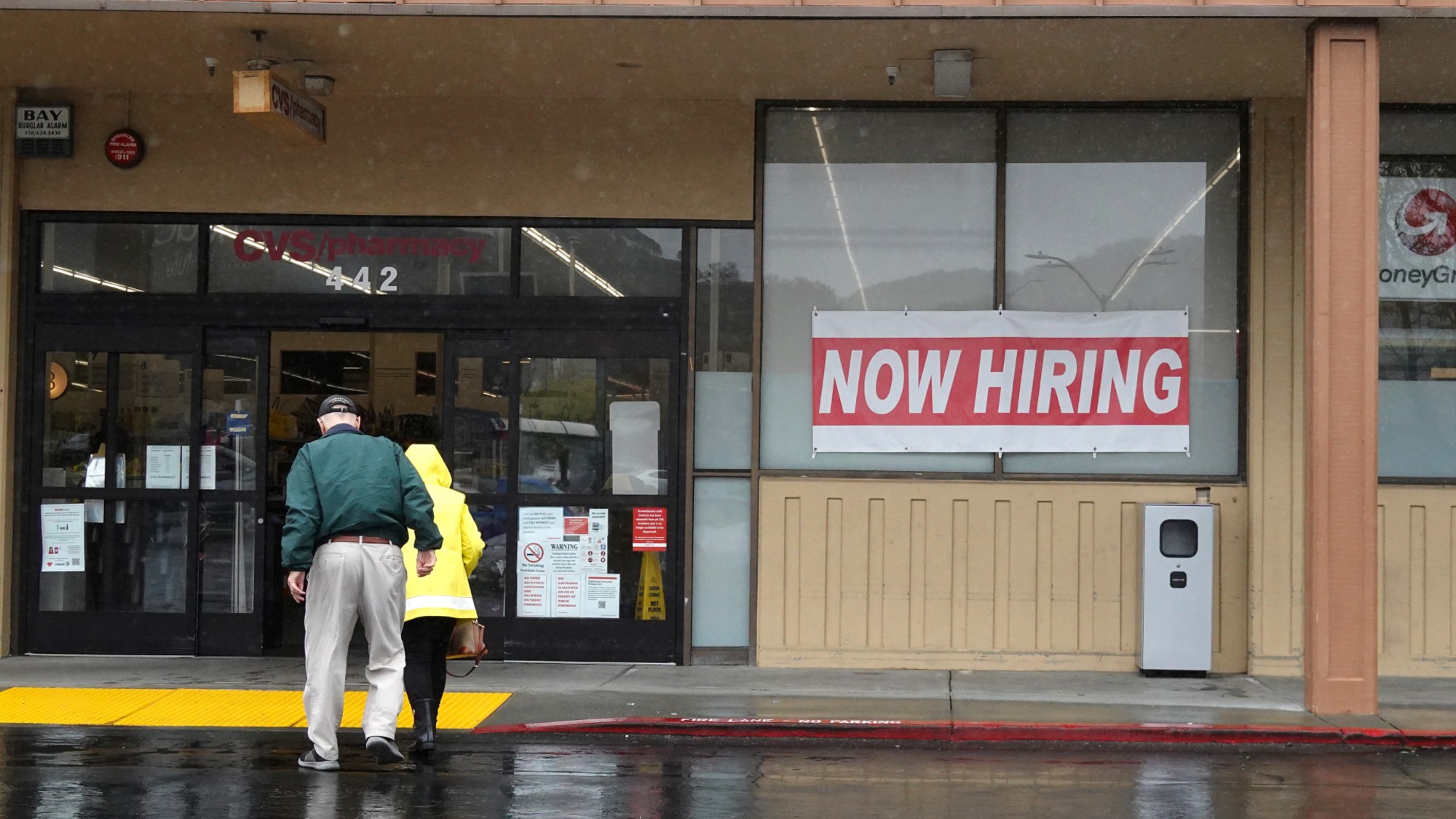 What is the job market's future after Trump's tariffs?
What is the job market's future after Trump's tariffs?Talking Points Economic analysts are split on what the tariffs could mean for employees
-
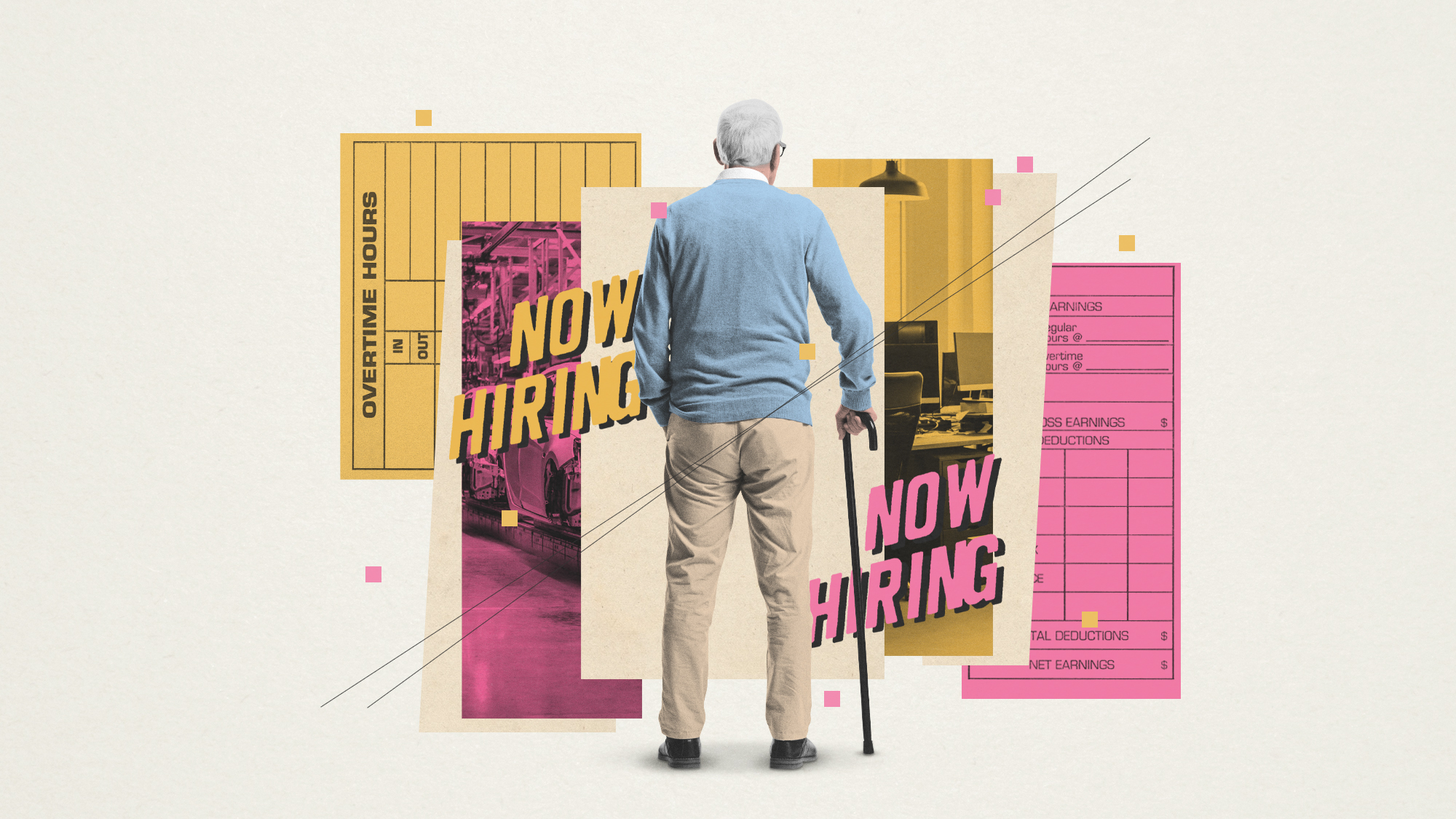 Why are older workers staying on the job?
Why are older workers staying on the job?Today's Big Question And what does it mean for younger workers?
-
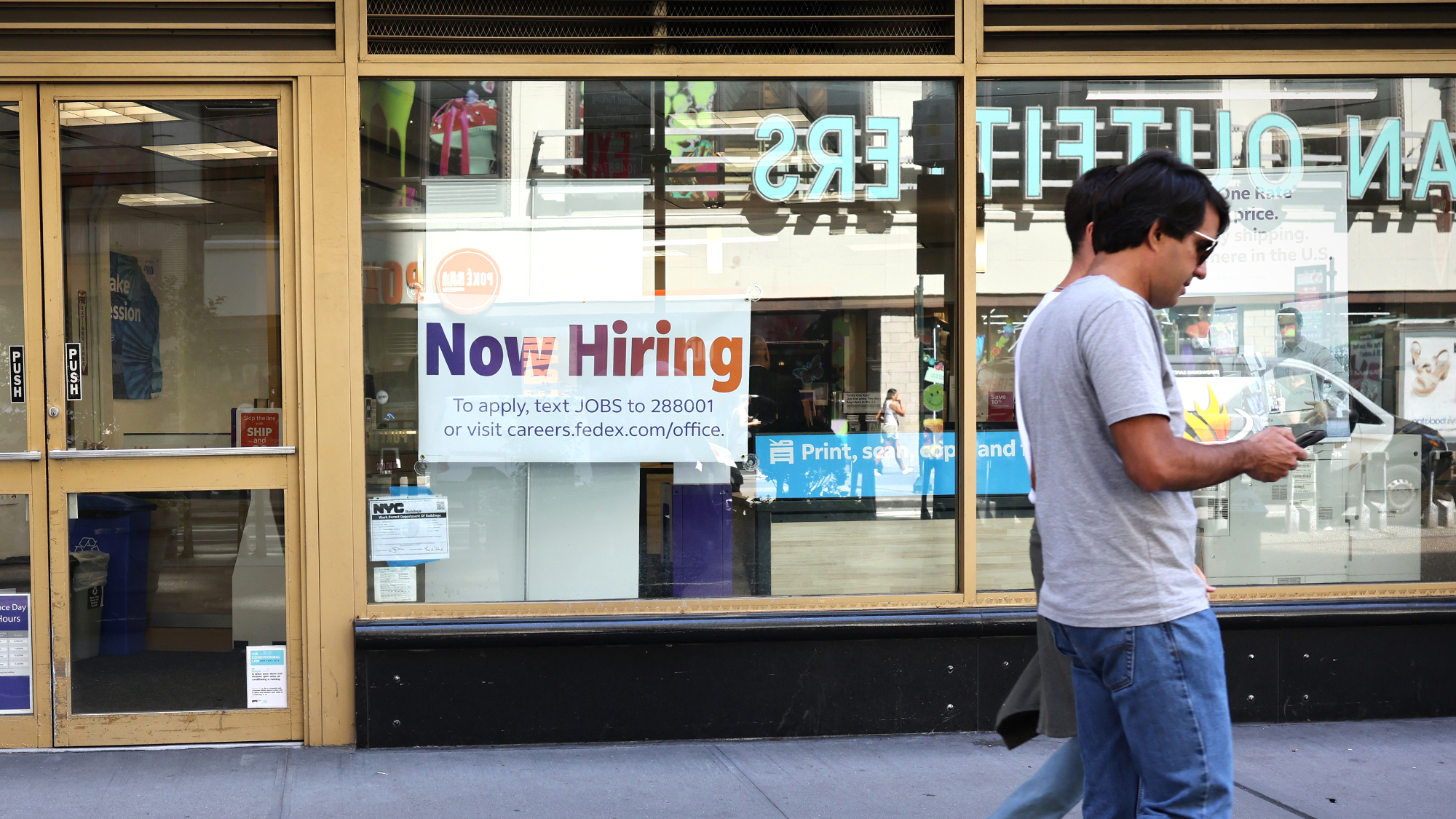 US job growth revised downward
US job growth revised downwardSpeed Read The US economy added 818,000 fewer jobs than first reported
-
 Are we getting a 'hard landing' after all?
Are we getting a 'hard landing' after all?Today's Big Question Signs of economic slowdown raise concerns 'soft landing' declarations were premature
-
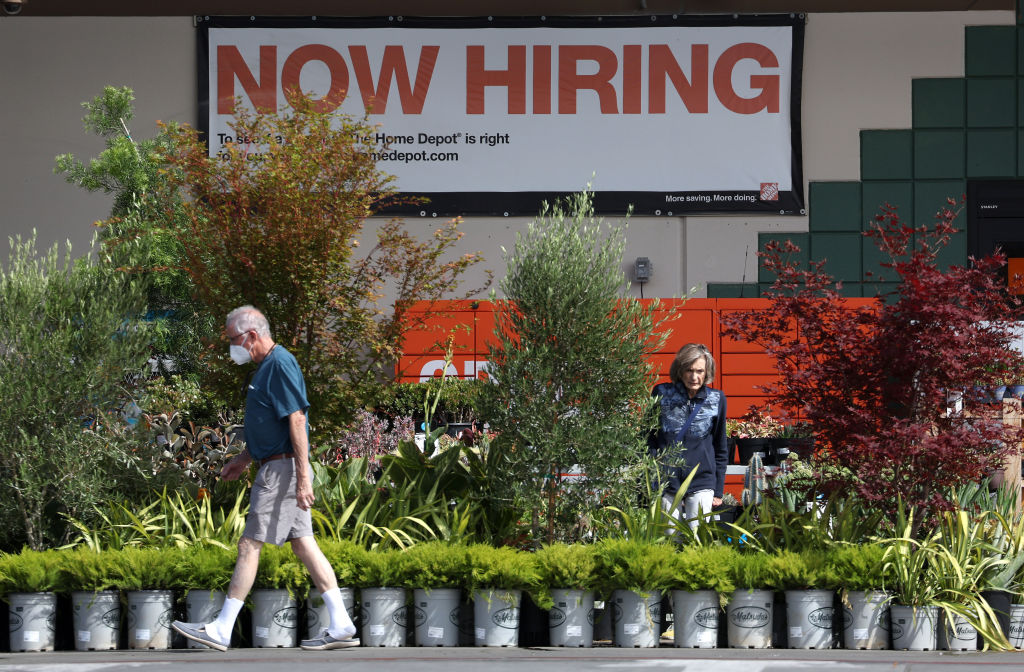 U.S. employers exceed expectations by adding 223,000 jobs in December
U.S. employers exceed expectations by adding 223,000 jobs in DecemberSpeed Read
-
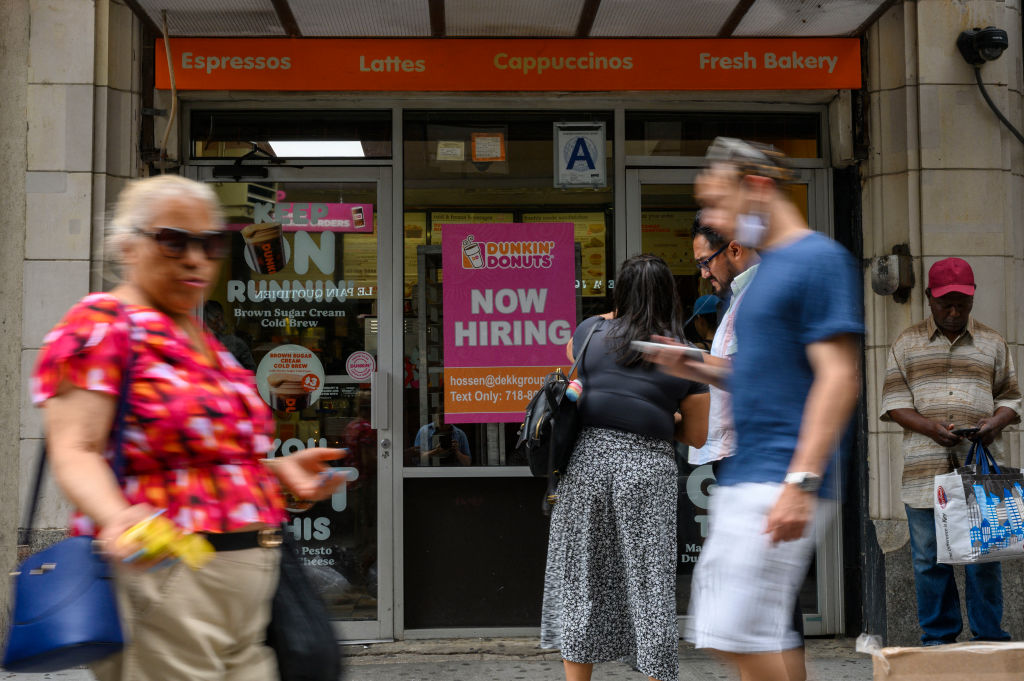 The U.S. added 263,000 jobs last month, beating expectations
The U.S. added 263,000 jobs last month, beating expectationsSpeed Read